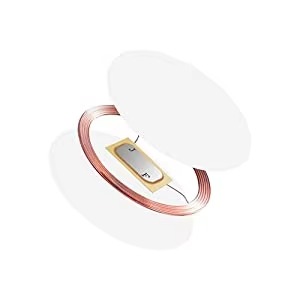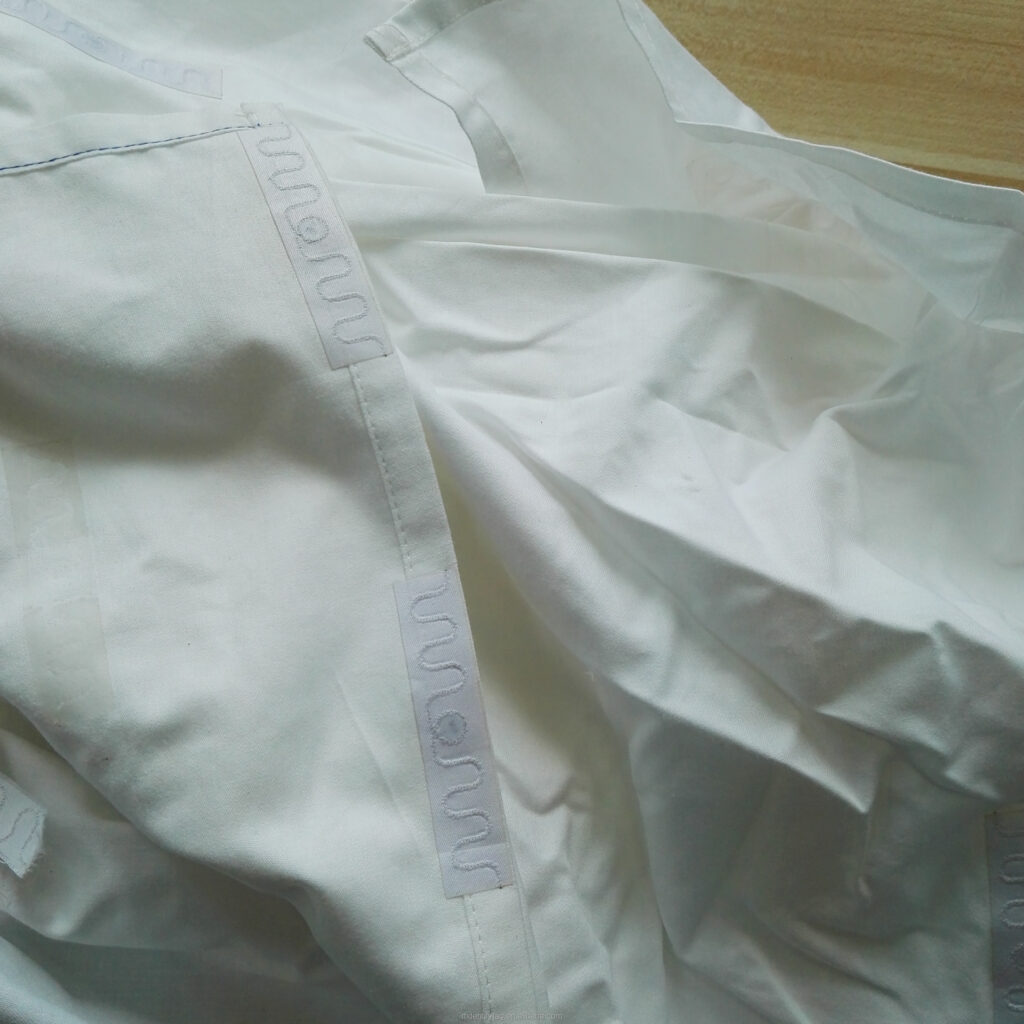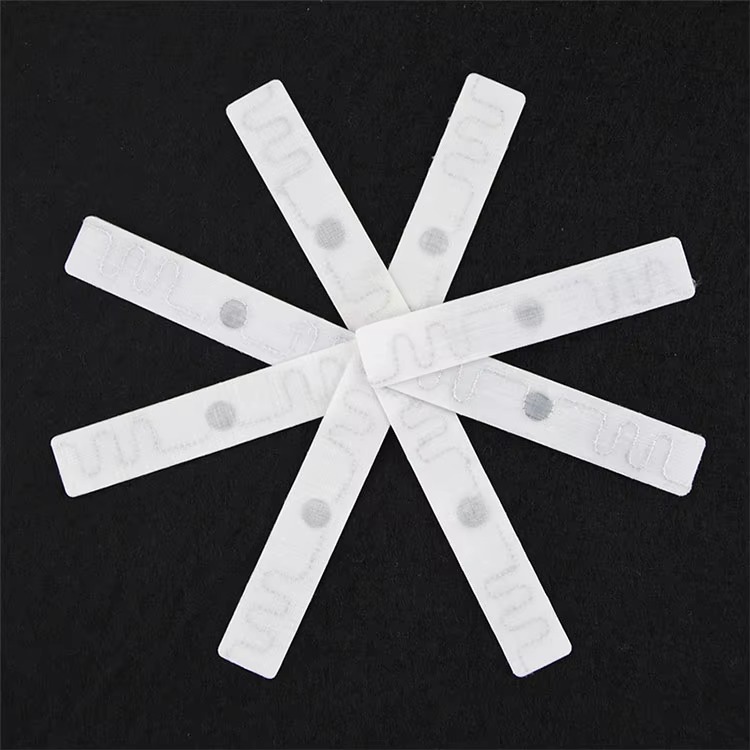
Compact and Durable RFID 1K Token Coin Tags for Asset Tracking
The 13.56 MHz RFID 1K token coin tags present an excellent solution for asset tracking, primarily due to straightforward installation, and robust durability.
Our robust RFID tags for textiles are engineered from the ground up for durability and longevity. Their resilient design ensures lasting performance and consistent operation, making them the perfect solution for dependable textile identification and control.
These RFID laundry tags are meticulously designed to withstand the rigors of industrial laundry processes, including repeated wash cycles, elevated temperatures, and chemical exposure.

Multiple RFID tags can be scanned simultaneously, conserving valuable time and resources. Meanwhile, each individual textile receives a unique identifier, enabling rapid processing and precise tracking.
Integrate laundry RFID tags discreetly into seams and hems, apply them directly to fabrics using heat-sealing methods, or embed them within small pouches to streamline your linen management workflow.
Our RFID textile tags are customized to address the specific requirements of various applications. Whether you operate a laundry service, hotel, hospital, healthcare facility, restaurant, fitness center, or any other laundry-intensive business, our RFID tags are the key to unlocking enhanced efficiency, accuracy, and comprehensive inventory oversight.
Hotel Linen Administration
Hospital Linen Monitoring
Restaurant Tablecloth and Napkin Management
Gym Towel Control
Spa and Wellness Center Robe and Linen Management
Uniform and Workwear Monitoring
Industrial Laundry Operations
Sports Team Apparel Management
Added Features of Textile RFID Tags:
Data Encryption for Enhanced Security: Our textile RFID tags offer data encryption capabilities, ensuring that sensitive information related to your inventory remains secure and protected from unauthorized access.
Customizable Memory Capacity: Depending on your specific needs, our RFID tags are available with varying memory capacities. This allows you to store additional data beyond the unique identifier, such as manufacturing details, care instructions, or ownership information.
Flexible Form Factors: Beyond the standard tag formats, we offer a range of flexible and customizable form factors, including ultra-thin tags and tags designed for specific applications, such as embedding in buttons or accessories.
Frequently Asked Questions
What are textile RFID tags, and how do they function?
Textile RFID tags are compact, resilient devices, resembling care labels, that contain a unique identification code. They utilize radio frequency technology to transmit data to RFID readers, facilitating automated tracking and management of laundered items.
What advantages do textile RFID tags provide?
Textile RFID tags deliver numerous advantages, including dependable identification, enhanced operational efficiency, error reduction, real-time tracking capabilities, cost optimization, and improved customer satisfaction. They surpass barcodes in reliability, withstanding over 200 wash cycles and providing consistent identification.
Are textile RFID readers, reading stations, and software adaptable to various laundry equipment types?
Yes, laundry RFID components are engineered for compatibility with a broad spectrum of laundry equipment and systems, ensuring smooth integration into your current operational framework.
How are textile RFID tags affixed to textiles?
There are several methods for securely and discreetly attaching RFID tags to textiles. Tags can be sewn into hems or enclosed within small fabric labels. Certain RFID tags feature a specialized heat-activated adhesive backing, allowing them to be directly heat-sealed onto the textile.
Can textile RFID tags tolerate demanding conditions?
Absolutely. Laundry RFID tags are built to withstand extreme industrial environments, including exposure to elevated temperatures, moisture, chemicals, and physical stress.
Which sectors can leverage the benefits of textile RFID tags?
Laundry RFID tags are adaptable and beneficial for a wide array of industries, such as hotels, hospitals, nursing homes, restaurants, gyms, spas, and industrial laundry providers.
How do textile RFID tags, in conjunction with RFID stations and management software, contribute to operational cost reduction?
Laundry RFID tags streamline resource allocation, decrease manual labor requirements, and minimize errors, resulting in substantial long-term cost savings in laundry management.
Do RFID tags facilitate real-time tracking and monitoring of textile items?
Yes, RFID tags empower real-time tracking, delivering up-to-the-second updates on the location and status of laundered items, as well as insights into linen quality (e.g., by monitoring the number of wash cycles). This feature is particularly valuable for hotels aiming to provide guests with superior linen quality.
What is the most cost-effective approach to implementing RFID technology for textile applications?
The most economical method is to have RFID tags automatically and seamlessly integrated into textile items by the linen manufacturer during the production process.
Can textile RFID tags be safely applied to delicate fabrics?
Yes, laundry RFID tags are designed to be gentle on fabrics. They can be securely attached without causing damage or compromising the integrity of delicate materials, such as personal garments of patients in medical care facilities.
Conclusion
Textile RFID tags represent a transformative technology for the textile management industry. Their durability, coupled with advanced features like data encryption, customizable memory, and flexible form factors, provides unparalleled efficiency, accuracy, and security for businesses managing large volumes of textiles. By adopting RFID technology, companies can optimize operations, reduce costs, and elevate customer satisfaction to new heights.


Newest trends and common knowledge in RFID laundry tags.

The 13.56 MHz RFID 1K token coin tags present an excellent solution for asset tracking, primarily due to straightforward installation, and robust durability.

Transform dining with NFC Menu Tags! Effortlessly access digital menus by scanning or tapping, ensuring quick, seamless ordering for an enhanced customer experience.

Streamline laundry operations with RFID laundry tags—track garments, manage inventory, and boost efficiency effortlessly in commercial laundry services.

As one of the top RFID Tag manufacturers in China, we specialize in high-quality RFID Tag and other RFID products designed to meet the diverse needs of various industries.
@ 2024 RFID Laundry Tag. All right reserved.
Didn’t find what you want? Ask our manager for help!